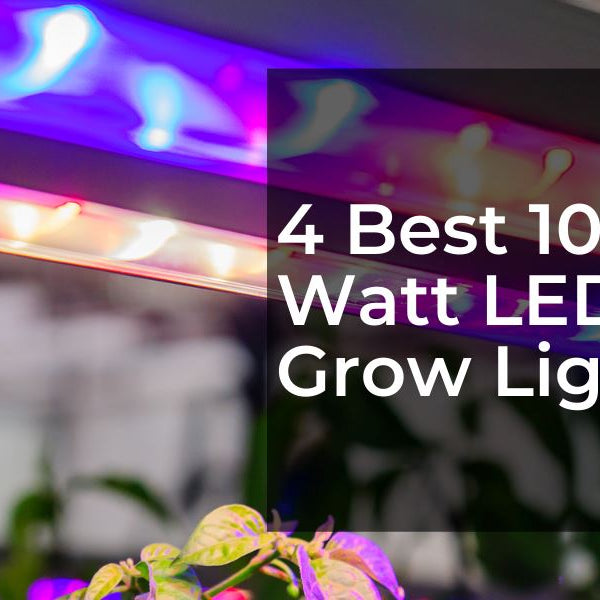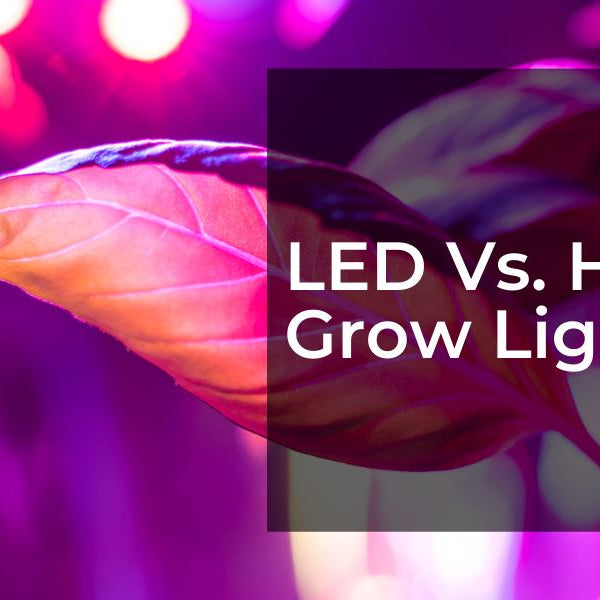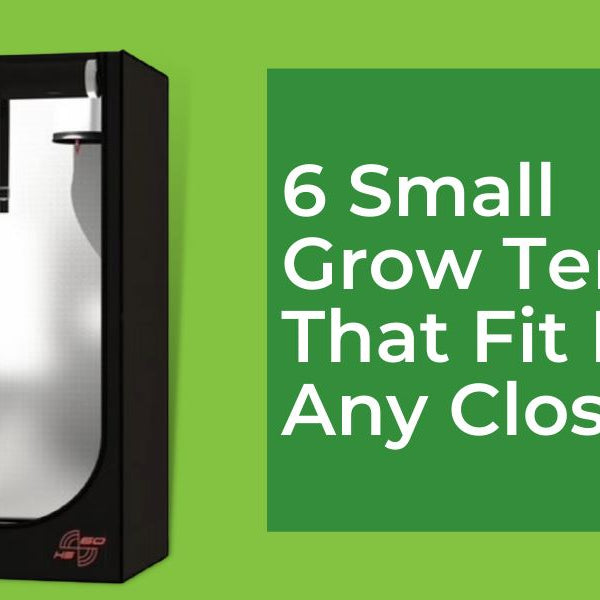
Questions? Give Us A Call.
Questions? Give Us A Call.
Sun to Fri 7am-7pm EST


Water carries the nutrients your plants need.
Those nutrients are absorbed directly from the water into the roots.
Water that contains too few nutrients will starve your plants. Water with too many nutrients is harmful as well.
Water that is too basic or too acidic makes it harder, or even impossible, for roots to absorb nutrients.
The wrong temperature has the same effect.
Using the correct water is vital for a healthy cannabis garden, especially if you are growing hydroponically.
Rainwater offers the best combination of low price (free!), good natural pH level and good mineral content. You'll still want to test it and make adjustments, but it is the best overall source of water.
That said, there are other sources that are also great. And for many growers, some of those other sources are more convenient than rainwater.
Before we look at the most common sources of water for cannabis growers, let us first examine what the ideal water quality is and how we can ensure our plants are getting that ideal water.
If you use any water source that is not pure distilled water, it is always a good idea to test the water. The most important things to check are the pH level and the mineral content.
If the water is not ideal, you will need to adjust it. You can also purify it completely using reverse osmosis (a basic filter system like this one * is generally enough) or distillation. This removes all minerals, so you then need to add in the ideal level of nutrients.

Cannabis needs a pH between 6 and 6.8 when growing in soil and 5.5 and 6.5 when growing hydroponically.
Rather than shoot for a specific pH, you want to keep it in those ranges. Different nutrients are absorbed best at different pH levels, so modifying the pH (while staying within the ideal range) actually allows more nutrients to be absorbed into the roots.
You monitor the pH levels by using test strips or a pH meter like this one.*
When growing in soil, test the pH of the runoff water to get a good idea of what the actual pH level in the root area is. The nice thing about soil is that it actually acts as a natural buffer, meaning that pH changes in the water do not have as big of an impact on the pH level near the roots.
In hydroponic systems, pH changes in the water have a much more immediate affect on the plants. You want to mix your nutrients and water in a clean reservoir and check the pH immediately.
Then let the mixture sit for an hour before checking the pH again, since it can change within the first hour. Adjust as needed, before using the water for your plants.
The best way to adjust pH levels is to use a product like this * that is specifically meant for marijuana growers. Alternatively, you can also use garden lime to raise the pH and white vinegar to lower it. It is best to add nutrients first (see the next section) and then adjust the pH.

To test the mineral content, use a TDS (Total Dissolved Solids) meter like this * one, which also tests the electrical conductivity and temperature.
If you are using tap water, your local government will also be able to provide you with water quality data. The same may be true for well water, though that is only sometimes the case. If you're in the US, check the US Geological Survey National Water Information System to see if they have info on your area.
Mineral content is measured in parts per million (ppm). Tap water should always be under 400 ppm (if not, there is a serious issue with the water quality in your area) and generally between 50 and 300 ppm.
Cannabis likes to get 500 to 600 ppm after cloning, 800 to 900 ppm when vegging, and 1000 to 1100 ppm during the flowering stage.
Nutrient solutions like these * can be used to get the mineral content of your water to the ideal levels. There are also nutrient solutions made specifically for hard water, if your water has a high ppm (over 400) to begin with.
The ideal water temperature for marijuana is between 68° and 73° F (20° to 23° C). If the water gets too hot or too cold, the roots can’t properly absorb nutrients.

In general, rainwater is the best type of water to give your plants. It is free, once you’ve paid for the container(s) to store it in and it is mostly free from contaminants.
But don’t believe the hype that it is perfectly pure and pH neutral. Thanks to human pollution this is only the case in very few locations on the planet.
In most areas, rainwater is slightly acidic (it’s the reason plants get a little growth spurt after a good rain). If you let it sit for a bit, as is usually the case when growing indoors, the acid will neutralize.
Either way, you want to test the pH level to make sure it is within the ideal range for weed plants.
Despite what many websites will tell you (often ones selling expensive reverse osmosis systems, or recommending them in exchange for a commission), rainwater is great for hydroponics.
The key is to test it to make sure the pH lies within the acceptable range and to find out the mineral content. Make adjustments to both to ensure the water is good for your plants.

Spring water can be another great source of water for your marijuana plants. Spring water is basically groundwater, meaning it can vary greatly from one area to the next.
You definitely want to test the water before use to find out the pH level and the mineral content. Make adjustments to both as needed, before feeding the water to your cannabis plants.

Mineral water generally refers to water with a high mineral content or to carbonated water. Either way, it makes little sense to use it for your cannabis grow, because it is expensive.
Tap water also contains minerals and costs much less. Just make sure to test the tap water and remove any contaminants. Carbonated water is not something you want to use.
Purified water is water with no mineral content whatsoever. For this reason, you must add all the nutrients your plants will need into the water manually, before giving it to your plants. Mineral-free water will suck the vital minerals away from your plants.

Tap water is the most accessible type of water for most of us. It is also one of the best water sources.
Naturally, you want to test the water, to make sure you know exactly what is in it and what you need to add (or filter out) to make it healthy for your plants. Your local government will have water quality records, if you want to go beyond pH and TDS testing.
Many municipalities in the US add chlorine and/or fluoride to the water supply. To get rid of the chlorine, simply let the water sit for 24 hours. It will evaporate naturally.
Note that some municipalities use chloramines instead of chlorine. Chloramines do not evaporate naturally.
You will have to filter the water using an activated charcoal filter to get rid of chloramines. Filtering works for chlorine as well. Both are also removed by reverse osmosis filtering or distillation.
Flouride is more difficult to remove. If your water contains fluoride, you will need to filter it out using an activated alumina filter or reverse osmosis. You can also distill the water to remove fluoride.

Bottled water can be a good source, except for the cost. Tap water is generally just as good, as long as you make sure the mineral content is not too high and there is no chlorine or fluoride in the water (fluorine is often in bottled water as well). Why pay so much more for bottled water, which is essentially the same?
Distilled water contains no nutrients, so you need to make sure to add some. Water with no nutrients will suck up nutrients from the soil and plants.
Apart from that, distilled water is great, because you know it contains no contaminants and you control exactly which minerals to add.

Well water can be a good source for hydroponics, but you absolutely must test it first. You need to know exactly what minerals and contaminants are in the water and what the pH level is. Then you need to modify the pH and bring the mineral content into the ideal range, before using the water.
You've probably sensed a common theme: test your water!
No matter what source you use to get your water, you can ensure it is great for your plants by testing it and then removing any contaminants and bringing nutrient levels and the pH into the ideal ranges.
Water and light are the two most important fuels for any plant. Now that you've got the water figured our, here is some help with the lighting.
*Commission earned



Comments
Leave a comment